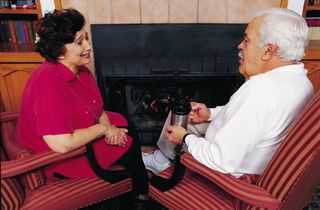

The Daily Record’s recent article, “How to organize your affairs if you are a senior citizen,” says the first step is to collect your important personal, financial, and legal information so you can arrange it in a way that will benefit you now and your family in the future. The next step is to create sets of important information and instructions concerning how you want certain things handled when you pass away or if you become incapacitated.
Here are some of the personal, legal, and financial items to consider:
Personal Information
· Make a list of contact information for close friends, clergy, doctors, and advisers such as your estate planning lawyer, accountant, and insurance agent.
· Make a list of medications that you and your spouse take and any allergies and illnesses.
· Include birth certificates, Social Security cards, marriage licenses, military discharge papers and other important papers.
· List the locations that are locked or password protected, like safe deposit boxes, safe combinations, and security alarms.
· List the companies or people who provide services such as: phone, cable, electricity, etc.
· Write down specific instructions for the care of pets.
· Detail your wishes for organ and tissue donation, along with funeral instructions. If you have a pre-paid contract for the services of a funeral home, include a copy of the agreement.
Legal Documents
· Include all of your estate planning documents, such as your will and any trusts.
· A copy of your financial power of attorney that names a trusted agent to handle money matters, if you’re incapacitated.
· A copy of your advance health care directives, including a living will and medical power of attorney, which detail your wishes for end-of-life medical treatment or when you are unable to communicate health decisions for yourself.
Financial Records
· Create a list of your accounts, brokerage and mutual fund accounts, and other financial assets.
· Make a list of loans, leases, or debts, like a mortgage, car loan, student loan, medical bills or credit card balances. Add to this list, all credit and charge cards with the card numbers and contact information.
· Note any retirement plans, pensions, or health benefits from your current or former employer with the contact information for the benefits administrator or HR Department.
· List insurance policies: life, long-term care, home, auto, Medicare, Medigap and prescription drug insurance policies with policy numbers and pertinent phone numbers.
· List real estate, vehicles, and other properties you own, rent or lease and include the deeds, titles and loan or lease agreements.
· Detail the location of your tax records and your tax preparer’s contact information.
Now that you have all of this, keep it organized in a fireproof box or a home safe, and review this information and keep it up-to-date. And don’t forget to let your family know where to find it.
Reference: The Norman (OK) Daily Record (January 2, 2017) “How to organize your affairs if you are a senior citizen”


